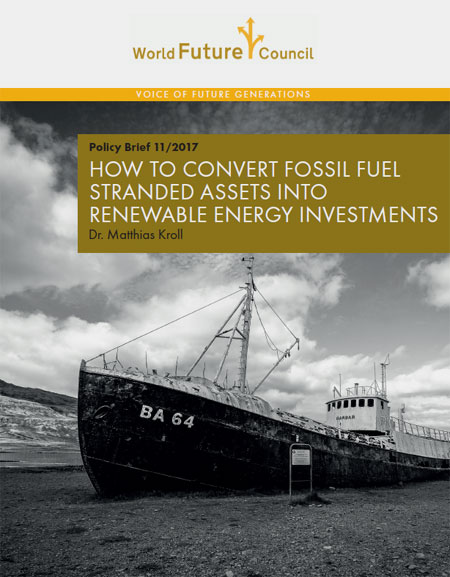Implementing a “climate bailout”
How to convert fossil fuel stranded assets into renewable energy investments
To comply with the 1.5°C limit agreed in Paris, a significant fraction of fossil resources cannot be used for energy production. The loss of value of fossil fuels such as oil, gas and coal will cause considerable uncertainty and instability on the financial markets. Also, the unavoidable transformation of energy companies towards renewable energy generation will be even harder when they are weakened by the accelerated depreciation of their fossil fuel assets.
Therefore, a new financial instrument is required to enable energy companies to convert their de facto “stranded” fossil fuel reserves into renewable energy (RE) assets. Since assets already threatened by “stranding” can only be sold in the private financial markets at a minimum residual value, private actors can be excluded as feasible buyers.
Passing on the losses to taxpayers would be neither politically nor financially realistic. The only institutions that have the economic potential to implement a “climate bailout” are Central Banks, just as they have done in the banking crisis since 2008.
- Klima-Bailout: Ein Vorschlag zur Durchführung der notwendigen Konversion fossiler „Stranded Assets“ in erneuerbaren Energien (pdf)
- “The Global Risks Report 2018”









